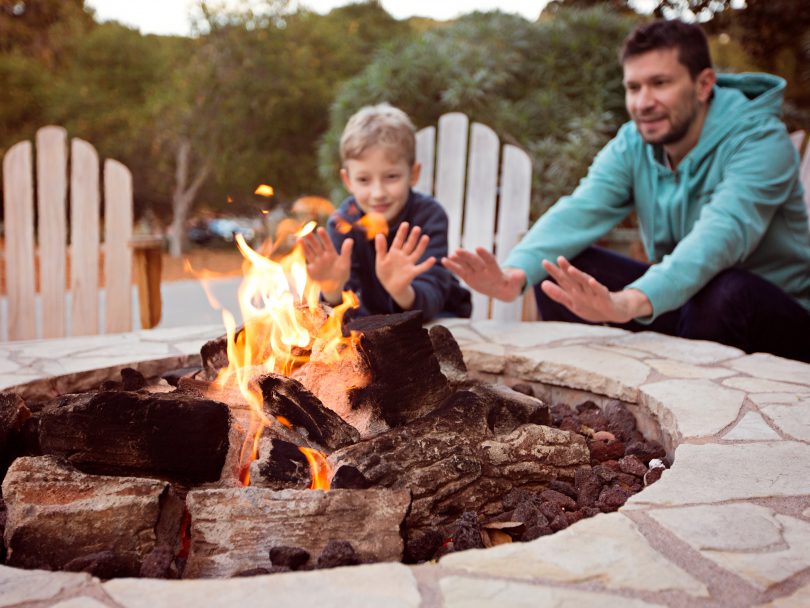As people become more active during the warmer months, keeping home safety top of mind can sometimes go by the wayside. However, when it comes to safety, you can never be too prepared.
Inspect and repair outdoor areas
Set aside time to evaluate any damage or potential hazards as the weather warms. For example, fallen tree branches and leaves can become trapped in gutters and pose a fire hazard. When working with ladders outside, always look up to make sure you have enough clearance around overhead power lines. If trees on your property are growing close to or around power lines, this can pose a fire hazard, especially in mountain areas where the risk of wildfire is higher. But leave the tree trimming around power lines to the professionals. Contact your local electric cooperative if you need to have your property vegetation evaluated.
Keep outdoor activities safe
Teach kids that they should stay away from pad-mounted transformers (the big green boxes in your yard or in your neighborhood). Kites and drones should be flown only in wide open areas and away from overhead power lines. Gardening and landscaping activities also require extra care: Always call 811 to have underground power lines located and marked on your property before digging and planting.
Check batteries and alarms
It’s a good idea to review your safety equipment and ensure everything is in good working order a few times each year. For example, every type of smoke alarm must be completely replaced every 10 years whether it’s hardwired into your home or operates on a battery. New smoke alarms commonly come with built-in 10-year batteries, but it’s still a good idea to test the units regularly. You can also use this time to double-check the gauge on your fire extinguishers, replace batteries in flashlights, test security systems and replenish first-aid kits.
Check Appliances
Make time to check appliances or schedule an annual maintenance check. Don’t forget to change HVAC filters each month throughout the summer so your air conditioning unit runs efficiently and safely. Inspect appliance power cords for wear and tear and make sure they are not damaged. Maybe it’s time to update appliances to newer models or even make the switch to an electric water heater. Before upgrading any appliances, ask your local electric cooperative for potential rebate programs on Energy Star appliances and other energy efficiency upgrades.
With little effort, you can ensure your home’s safety equipment and projects are up to standards. A small investment of time and energy, this will provide some peace of mind while you are spending long summer days at home.

